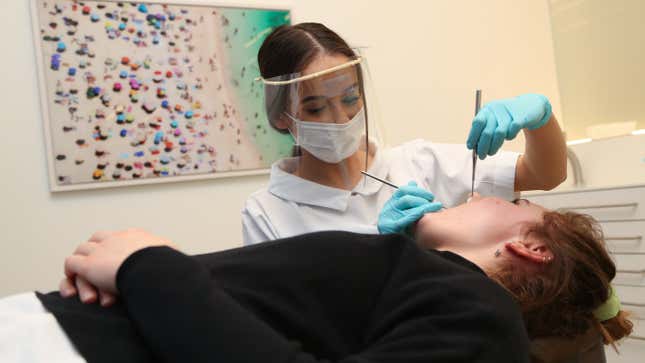William Brennan writes about Drs. John and Mike Mew for the New York Times Magazine in a piece that explores the father-son duo’s foray into “orthotropics”—a “cure” for physical imperfection rooted in both orthodontia and harmful views about masculinity. Generally, orthodontics states that crooked teeth are the result of genetics and nothing more. But Dr. Mew views crooked teeth as a byproduct of industrialization and changes to our diet and otherwise, making it so that the modern face is a mushy, soft mess that is also, to some people, hideous.
Changes in our lifestyle and environment since the 18th century, Mew contends, are inducing our jaws to grow small and recessed. The teeth do their best to come in straight, but our misformed faces cause them to twist and turn and compete for space. As a result, we’ve been robbed not only of tidy smiles but also, Mew says, of the well-defined faces that were the birthright of our ancient ancestors, and which Mew regards as the mark of true beauty.
Naturally, the Mews’ views on orthodontia are unpopular in the medical community. Relegated to third-rate medical journals and shunned from conferences and the like, the Mews have turned to YouTube, where they’ve found community with both incels and young women, all of whom are looking to change the shape of their face to fit traditional beauty standards. Because the Mews have been shunned by the orthodontia community at large, they’ve used tactics like posting videos about celebrities like Kylie Jenner—a woman who has clearly had some work done beyond orthodontia—as a means of touting their practice and attracting new clients, especially women who are in search of Instagram face without wanting to go under the knife to get it.
Read the piece at the New York Times here.

